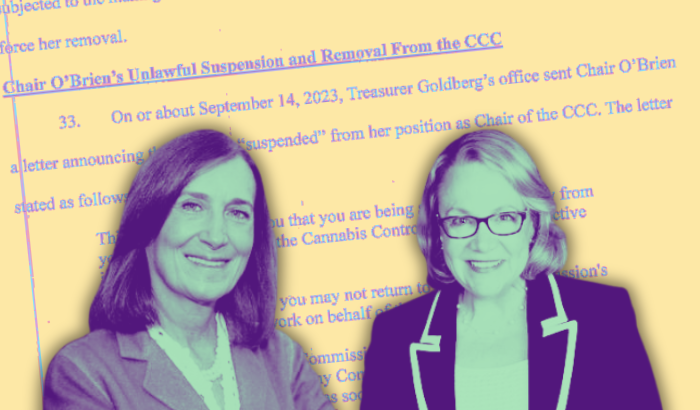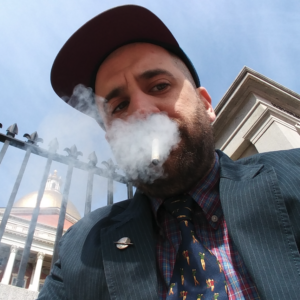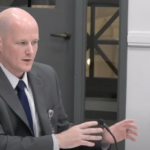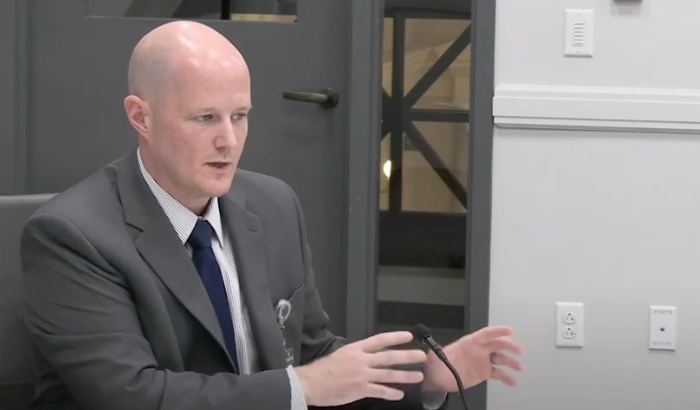
Allegations of racial insensitivity among various converging controversies involving cannabis regulator leadership in Massachusetts
It would be easier to teach cannabis tissue culture cloning to a rhinoceros than it is to explain what is happening at the Mass Cannabis Control Commission.
I know because I tried. Not to teach a rhino about micropropagation, but rather to help a couple of friends catch up on the latest insane clashes between cannabis commissioners, directors, and other state players and lawmakers.
The CCC was back in the headlines last Friday, after the Boston Globe dropped the latest development in the ongoing saga between agency Chair Shannon O’Brien and state Treasurer Deb Goldberg. Goldberg, who appointed O’Brien to the top spot last year, suspended the chair in September. O’Brien right away sought an injunction barring Goldberg “from continuing her unlawful removal of O’Brien from her position at the CCC,” saying she was booted “without notice, without articulated reason, and without any opportunity to be heard, all of which is required by [Massachusetts law].”
Other than some vague complaints about O’Brien’s leadership style that Goldberg spit out in defense of the seemingly sudden removal, we didn’t hear much beyond oceans of innuendo about why the chair was shown the door. Until this latest paywalled Globe scoop, which highlighted allegations of O’Brien making “racially, ethnically, [and] culturally insensitive statements,” at least one in reference to “a person of Asian heritage,” which surfaced in subsequent court filings. The documents also illuminate the tension that is palpable during commission meetings between O’Brien and Commissioner Nurys Camargo, acknowledging an exchange between the two in which the former reportedly implied that her colleague must know state Sen. Lydia Edwards because they are both people of color.
This drama is a bear to cram in a column or casual conversation, because there is a Game of Thrones-level amount of critical relevant info and context. Before the allegations of racial insensitivity were verified last week (they were first reported by blogger Grant Smith Ellis months ago), the story coming into focus suggested O’Brien’s tense relationships with colleagues—and particularly CCC Executive Director Shawn Collins—were at least partially symptoms of potentially concerning underlying causes. In October, Jeff Rawson, Ph.D., president of the Institute of Cannabis Science in Cambridge, sent a letter to Goldberg expressing “concerns regarding the suspension” of O’Brien, writing, “My experiences leading an organization to protect consumers of cannabis have led me to see Chair O’Brien as a needed reformer at the CCC, and I believe she is the subject of retaliation in response to performing her duty.”
As much as the public tends to distrust most bureaucrats, electeds, and appointed officials, people also like to pick protagonists and bury evildoers. But while it is unclear who will emerge from the CCC scrum scuffed and/or who will walk away untouched, by this point it is obvious that the embarrassing and all-encompassing scenario is already a net loser for most—the commission, industry stakeholders, taxpayers.
The remaining CCC members, meanwhile, have met several times in private executive sessions outside of public view to presumably address the challenges that put them in a negative light—and they’ve also performed. With a temporary chair and acting executive director in place, they completed a complicated regulatory rewrite ahead of deadline, jumped into social consumption, and released their annual report highlighting noteworthy achievements.
All of which will continue to unfold in the shadow of the circus that’s come of the Goldberg versus O’Brien fiasco and various intersecting plotlines. Simultaneously, a group of Massachusetts legislators called for increased oversight of the “dysfunctional” agency, while CCC Executive Director Collins, whose own rift with the sidelined chair is also tied into the situation, recently resigned from the key management position.
O’Brien was initially supposed to have her proverbial day in Suffolk County Superior Court. But after the treasurer agreed to hear the chair out in a less formal setting, that date was called off. In its place, Goldberg was scheduled to meet with O’Brien in early November. That gathering got pushed back to Dec. 5, but in bickering through various news outlets, it became clear that they were not heading toward agreement. The State House News Service noted that “while O’Brien seems to think the sit-down will be a public hearing … Goldberg’s office has more frequently referred to the huddle with O’Brien as a meeting and has said details on the format are not available.”
In the Globe update on Friday, O’Brien attorney Howard Cooper said that Goldberg “is afraid to hold a public hearing with witnesses and cross-examination,” and that “the court filings indicate ‘any allegation of racial insensitivity is frivolous in the extreme.’” I wasn’t able to hold the attention of my audience over the weekend long enough to delve into the nitty gritty, but for anybody interested in the play by play, now O’Brien is trying to push back tomorrow’s closed-door date with destiny. A Suffolk County Superior Court judge will address that proposed delay on Monday.
As for the larger story, nobody knows what will come of this joust or who will be held accountable or for what. But it’s doubtful that the impetus for or outcome of the unbelievable disorder hobbling the Cannabis Control Commission has as much to do with ridding Massachusetts government of racist workplace rhetoric as someone watching from a distance flipping through the news these past few days may think.
























